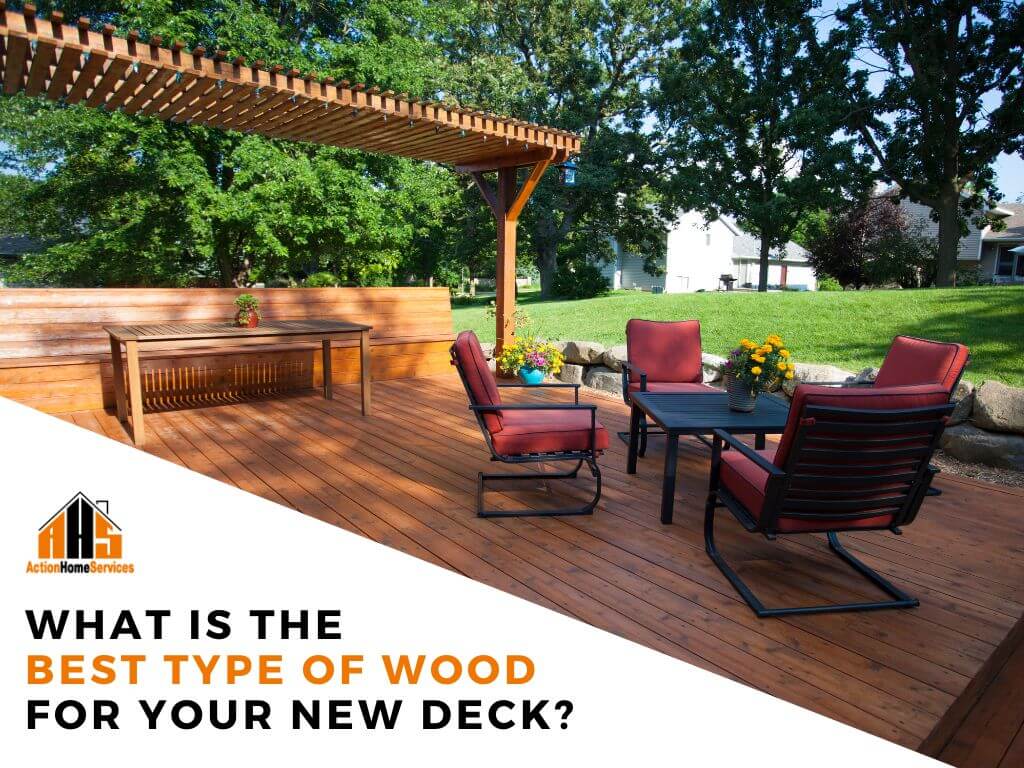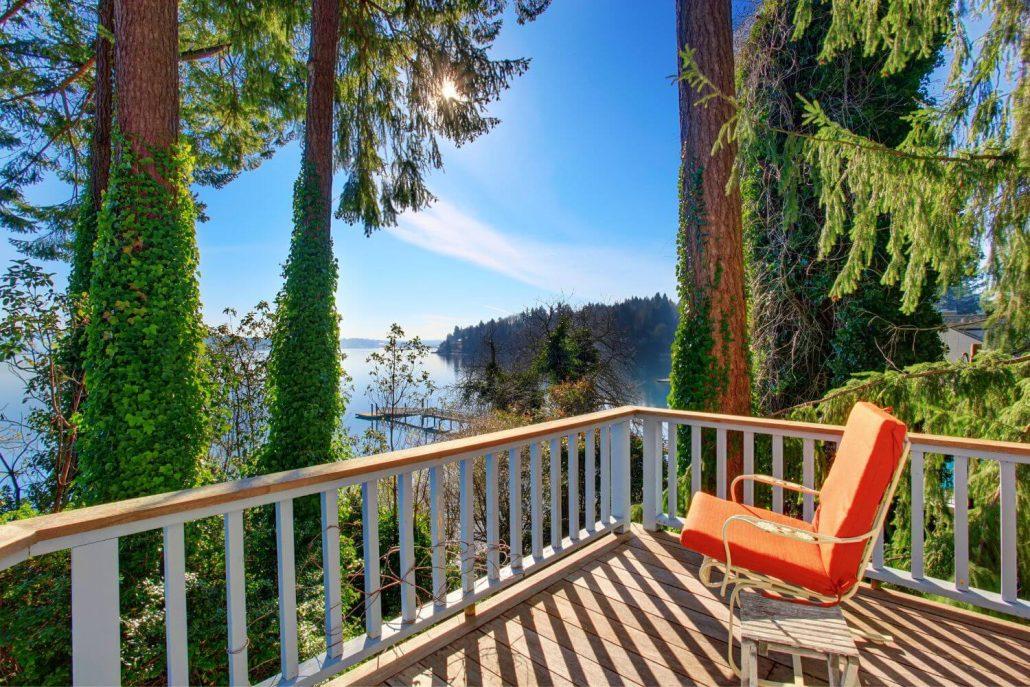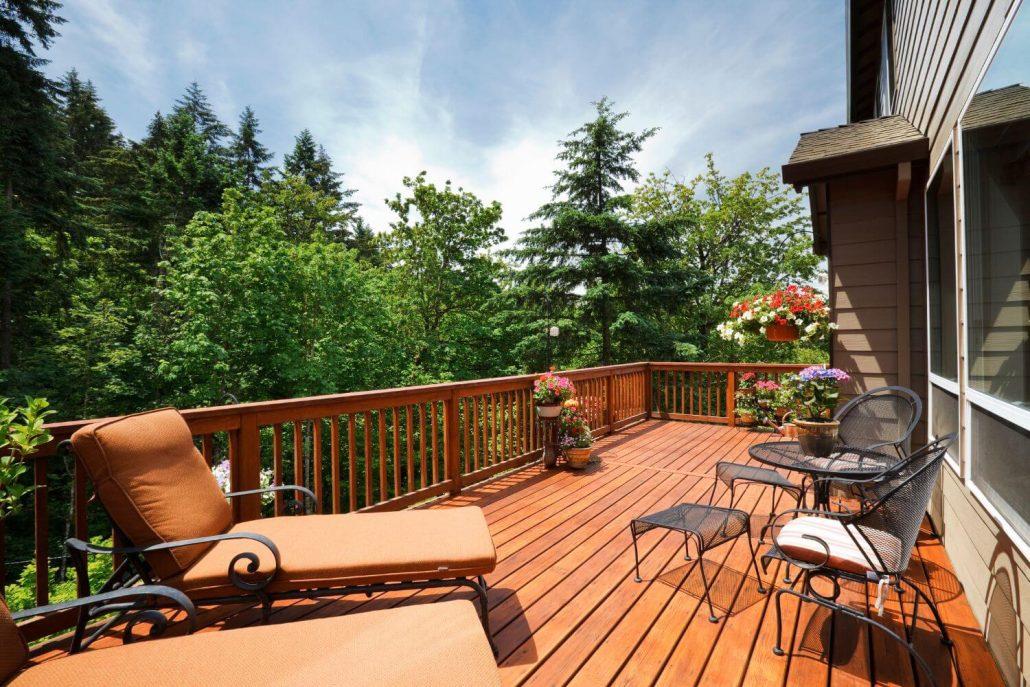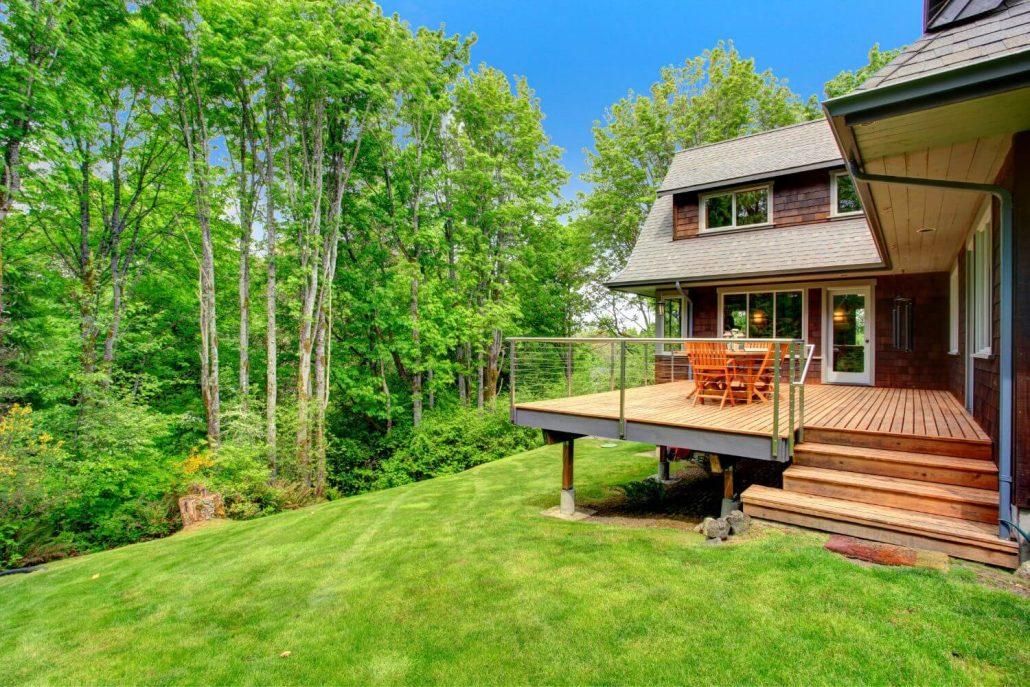
When envisioning the perfect outdoor deck for your home, choosing the right type of wood is crucial. Twp popular choices in Canada often stand out in the realm of wooden decks, pressure-treated wood and cedar. Each comes with its own set of unique properties, benefits, and limitations that cater to various preferences and considerations.
Learn more about our outstanding Deck Installation services in Toronto and the GTA!
Pressure-Treated Wood
Pressure-treated wood, predominantly crafted from pressure-treated pine, undergoes a treatment process where chemicals are infused into the lumber under high-pressure water. This treatment enhances its durability against decay, insects, and harsh elements, making it a popular choice in Canada for outdoor structures like decks.
Benefits Of Pressure-Treated Wood For Decks
- Durability: With its resistance to decay, insects, and extreme weather, pressure-treated wood has a prolonged lifespan, making it an optimal choice for enduring outdoor applications.
- Affordability: Positioned as a cost-effective solution, pressure-treated wood presents an accessible option for those seeking a balance between quality and budget.
- Versatility: Pressure-treated wood offers versatility in its applications. Its robust nature means it can be used for various structural components of a deck, providing a reliable foundation and framework for the outdoor space.
Limitations Of Pressure-Treated Wood For Decks
- Maintenance: While resilient, pressure-treated wood necessitates consistent maintenance efforts to preserve its appearance and structural integrity. Routine treatments, staining, or sealing are essential to counter the effects of weathering, preventing discoloration or degradation over time.
- Fading: In comparison to some wood types like cedar, pressure-treated wood may exhibit relatively quicker fading of its initial coloration. This fading, while natural, might be more apparent over the years and could require periodic refinishing to maintain a consistent appearance.
- Splinter Potential: Initially, pressure-treated wood may display a higher propensity for splinters, particularly as it ages and weathers. While this might concern some users, proactive measures such as regular sanding or sealing can mitigate this issue.

Cedar Wood
Unlike pressure-treated wood that relies on artificial treatments, cedarwood has an innate resistance against decay and insects. Abundant natural oils and extracts present within the cedar fibres create an environment hostile to fungi, pests, and moisture, effectively safeguarding the wood without the need for chemical interventions. This natural defence mechanism not only ensures the longevity of the deck but also minimizes the need for ongoing treatments, offering homeowners a low-maintenance solution that retains its beauty and integrity over time.
Benefits Of Cedar Wood For Decks
- Natural Resilience: The inherent natural oils within cedar infuse it with robust resistance against decay, insects, and moisture. This natural fortification significantly reduces the need for frequent maintenance, ensuring a deck that stands the test of time against nature's elements without constant interventions.
- Aesthetics: Cedar woods' natural grain pattern and colour age gracefully over the years, bringing a timeless charm to your outdoor space for years to come.
- Stability: Cedar's lower moisture absorption properties play an important role in maintaining deck stability. Its minimal expansion and contraction ensure that the deck maintains its structural integrity even in varying weather conditions.
Limitations Of Cedar Wood For Decks
- Higher Cost: Cedar tends to be pricier compared to pressure-treated wood, which might affect budget considerations.
- Size Availability: Certain sizes or configurations might not be as readily accessible compared to more commonly used wood options, potentially requiring additional effort or customized orders.

Selecting The Right Wood For Your Deck
Each wood type, such as pressure-treated wood and cedar, has its own set of characteristics, ranging from durability to maintenance requirements. Pressure-treated wood stands out for its economical nature and robustness but demands consistent maintenance due to the chemicals used in its treatment. Conversely, cedar, with its innate resistance and aesthetic charm, requires less maintenance but might present higher initial costs and potential limitations in custom sizes.
Building a durable and visually appealing deck often involves a strategic blend of wood types. While pressure-treated wood excels in providing structural support and cost-effectiveness, its limitations in aesthetics might necessitate the incorporation of cedar for visible areas. Utilizing pressure-treated wood for the underlying framework, which remains unseen, and selecting cedar for the deck's surface or railing, can strike an ideal balance between durability, cost, and aesthetics.

Ultimately, achieving the perfect deck involves a harmonious blend of functionality and visual appeal. Carefully weighing the benefits and limitations of each wood type, contemplating their application areas, and integrating them strategically results in a deck that harmonizes durability, aesthetics, and budget considerations.
Contact our team today to schedule your free at-home estimate!


